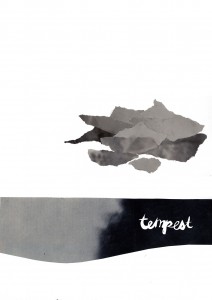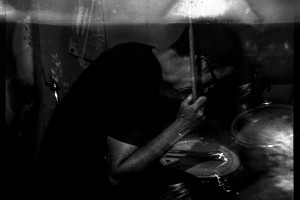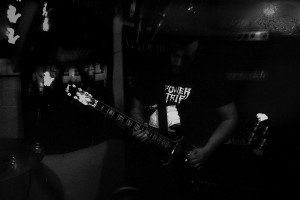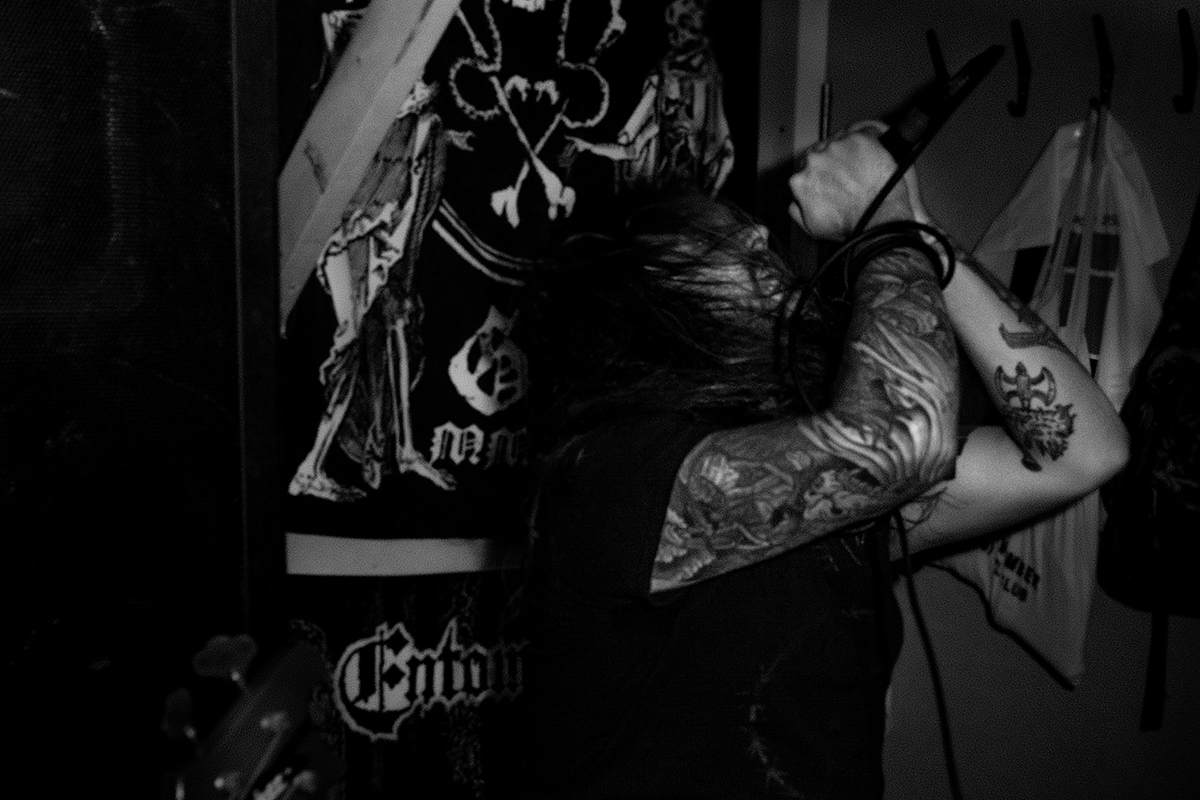Considering their contentment with anonymity, it’s somewhat of a surprise Tempest sat down to talk at all. Googling them merits next to null: a Facebook page barely a year old; a few forum entries on poorly formatted hardcore blogs; the occasional mention or accolade from a site savvy enough to have tracked them down. The root of their sphinxlike persona has been accredited to a distaste for spotlight, a contempt for media, and even a general unapproachability. In reality? Tempest are too shy for their own good.
“The short answer is that we’re just not good at it, and we never have been. One of us will try here and there for a month to keep up with it, but it just doesn’t happen,” says SD, on their lack of an online presence. Keeping with their reputation, Tempest have requested to use aliases for the purpose of this interview.
“It wasn’t so much about an image, it was just about letting the music do its thing,” continues CA. “It seemed like not a very farfetched idea at the time, and then as time went on it almost spiralled out of control and became somewhat lazy.”
For nearly a decade, Tempest has focused almost exclusively on how they sound, with little regard to how they look. Though their image may be linked to the “mysterious guy” genre of hardcore prevalent at the band’s conception, their output is certainly a departure. Tempest creates sonic sodomy, the type of music you play to scare your parents and awake the Devil. Their guitar playing is beyond loud, their drumming is beyond violent, and their screaming is often beyond comprehension. Ultimately, Tempest makes music that is not only a struggle to play, but can be an outright struggle to listen to.

It has become something of a cliché, but Tempest’s is the style of music that always seems to find its biggest audience in Europe. Be it the harsher climate or the lingering effects of despotism, hardcore and metal acts are frequently more beloved abroad. Since returning from their weeks-long tour on the continent last summer, however, Tempest has been doing their best to stay and think local.
As MK divulges: “We made a conscious decision once we got home to take a bit of a break from the band and not have to worry about it. Doing it every day, all day, for four or five weeks kind of became a lot. It was nice to step away — some of us jammed, some of us didn’t jam, and it was a way to just get back into real life and hang out with people that you missed.”

“After any tour,” continues AD, “coming back is a mixture of being worn out, but also being excited about everything that happened. I think that in Europe especially, the shows that happened there just don’t happen here. Sometimes I wish — not that it’s easy to do there — but I wish there were more options here for shows like that.”
That being said, Tempest have been pleasantly surprised with the reception they’ve received since being back in Vancouver. Having been a part of the city’s underground music scene for such a long time, the band has seen crowds shrink and grow, and seen tastes evolve and change. But over the last year, Tempest has had something of a resurgence in the wake of fresh DIY venues and a heap of younger concertgoers.

“If you stand in one place long enough, musical taste will come full circle around you,” SD muses. “There was a time when dark and crusty hardcore was really big and there were tons of bands doing it here, and I think that time came and went.”
His collaborators are quick to agree, offering their takes on the current state of hardcore in Vancouver:
“I think it’s a combination of people who haven’t seen us before ending up at one of our shows, and the young screamo kids and groups of people we weren’t aware of,” says AD.
“It’s changing,” concludes CA. “Since we’ve come back from the tour, I don’t know what it is, but I feel like we’ve been playing to different people, playing to new people, and things are opening up a little bit.”

While new crowds also offer the opportunity to perform new repertoire, Tempest’s latest release (an eponymous LP that has had some serious challenges with distribution) is now one year old. This is in large part due to the band’s arduous approach to songwriting. A single song can take months to complete, as Tempest are committed to total equilibrium when it comes to any decision involving the band — nothing is finished until everyone is on board.
“I know on the last record, much to everyone’s chagrin, after we had recorded a song I decided I didn’t like the ending, so we actually rewrote and recorded it,” SD confides sheepishly. Though they groan at the memory, the other members of the band don’t hesitate to affirm, unanimously, that it was the right call.

“We all support each other that way,” CA explains, “because if one of us doesn’t like something, the rest of don’t want to play something that person doesn’t like … The music that we recorded one year ago is the first time I’ve had stuff that we’ve done that I’m not completely ashamed of. It’s not like we’ve made music that’s bad by any means, but I actually like this. I’m proud of it.”
It may seem like an obvious approach, but it speaks to both the longevity of the band and their deep-seated friendship. With certain members having known one another since high school, and everyone being tied together through jobs, living situations, and all else, Tempest has come to represent something far more than their sum total on stage. They have quite literally grown up together, from early rehearsals in a Langley barn, to travelling the world as a legitimate hardcore force. Considering all they’ve accomplished thus far, it seems only likely that Tempest will continue to garner more traction down the road — attention, it can be safely assumed, they’ll work hard to eschew.
X
Visit tempestpunk.bandcamp.com to hear their music, or follow Tempest on Facebook for upcoming shows. They are playing with Autarch at askananarchist August 13.


